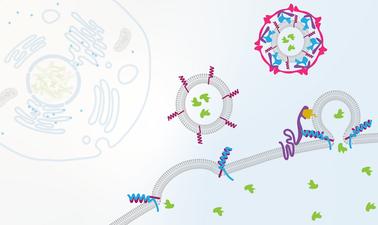MOOC List is learner-supported. When you buy through links on our site, we may earn an affiliate commission.

MOOC List is learner-supported. When you buy through links on our site, we may earn an affiliate commission.
Building upon the concepts from biochemistry, genetics, and molecular biology from our 7.00x Introductory Biology and 7.05x Biochemistry MOOCs, these cell biology courses transition to a comprehensive discussion of biology at an experimental level.
Professors Frank Solomon and Rebecca Lamason guide you through a learning experience where you will discover experiments that answered big questions and find out what is still on the horizon. You will embark on a lively journey through cellular transport mechanisms and learn how to apply key concepts and themes of this dynamic experimental science to understand the fundamental workings of cells.
We developed the 7.06x Cell Biology series with an emphasis on:
- Developing your scientific thinking skills including articulating hypotheses, performing thought experiments, interpreting data, and designing experiments.
- Using data based on real scientific experiments and highlighting the scientific process in assessments.
- Asserting that biology is an active field that changes daily through examples of research and relevance to medicine, not static information in a textbook.
- Uniting themes and principles that inform how scientists conduct and interpret research.
- Exploring foundational “neat experiments” that defined modern cell biology.
Implementing the science of learning in the course design.
What you'll learn
- How to apply biochemical and genetic approaches to address fundamental questions in the transport of molecules and proteins in the cell.
- How to evaluate the conclusions and models that scientists develop about cell biology from experimental approaches and results.
- How to select specific empirical methods and techniques based on the different kinds of questions scientists ask.
- How to design experiments to answer cell biology experiments with proper controls.
- How to assess biological necessity and sufficiency from experimental results.
- How to compare and contrast protein transport processes.
- How to identify recurring themes in protein transport, such as the use of signal sequences, G-protein coupling, and the role of channels.
Syllabus
- Membranes and Some Membrane-Bound Organelles
- Experiments with Membranes and Membrane Proteins
- Protein Trafficking to Membranes
- Nuclear-Cytoplasmic Transport
MOOC List is learner-supported. When you buy through links on our site, we may earn an affiliate commission.
MOOC List is learner-supported. When you buy through links on our site, we may earn an affiliate commission.
